Robert Rosenbaum – 2-Day ,Chronic Pain Certificate Course, Behavioral Treatment & Assessment
$300.00 Original price was: $300.00.$113.00Current price is: $113.00.
Imagine helping your clients learn that while pain might be unavoidable, misery is optional. Strengthen the therapeutic relationship by validating the reality of clients’ pain while introducing ways to help them immediately experience a lessening of their distress.
Robert Rosenbaum – 2-Day ,Chronic Pain Certificate Course, Behavioral Treatment & Assessment
Another client enters your office angry about the chronic pain they struggle with daily. They start sharing their story and the mask of frustration peels away to reveal the hopelessness and despair from living in a constant state of misery. Most clinicians are not trained in chronic pain, yet this scenario is becoming all too familiar, as at least 1/3 of our clients suffer from chronic pain. More and more clients are moving away from medication, seeking out holistic solutions, yet we’re not quite sure of the best way to help them.
Imagine helping your clients learn that while pain might be unavoidable, misery is optional. Strengthen the therapeutic relationship by validating the reality of clients’ pain while introducing ways to help them immediately experience a lessening of their distress. Explore acupressure and meditation to help clients discover how mind and body are connected.
In this recording, neuropsychologist, Dr. Robert Rosenbaum, will teach you the facts about pains’ biology and effective treatment strategies, so you can confidently educate and treat your clients. With experiential exercises such as guided imagery, acupressure, meditation, and gentle movement, combined with cognitive-behavioral methods, you’ll leave with the right skills and tools at your fingertips to treat chronic pain.
- Explore strategies on how to prevent pain before it begins for purposes of client psychoeducation.
- Explain the importance of early intervention in the pain cycle and its clinical implications.
- Identify the most common pain complaints as related to clinical treatment.
- Describe how age, gender, ethnicity, and culture influence the experience of pain as it relates to case conceptualization.
- Distinguish how different types of pain require different treatment approaches.
- Correlate how the brain, the mind, and the heart all affect pain for purposes of client psychoeducation.
- Examine and counter maladaptive myths about pain to improve client level of functioning.
- Assess pain through specialized questionnaires and interview methods to inform the clinician’s choice of treatment interventions.
- Demonstrate four meditation methods useful for dealing with pain in session.
- Discover six acupressure points helpful for pain prevention and management in clients.
- Implement clinical methods to help clients concretize their pain and use guided imagery to alleviate pain.
- Identify existential, spiritual, and self-identity issues which interact with biological and psychological components of pain as it relates to treatment outcomes.
Would you like to receive Robert Rosenbaum – 2-Day ,Chronic Pain Certificate Course, Behavioral Treatment & Assessment ?
Impact of Chronic Pain on Mental Health
Primary Prevention
- The best treatment is prevention
- Early detection and early intervention
Pain Prevalence and Impact
- Incidence and prevalence: most common types
- Societal costs
- Impact on client mental health and quality of life
Sociodemographic factors
The Biology of Pain
- What is pain?
- Physical, emotional, psychological, and environmental factors
- Pain intensity vs pain distress
- Types of Pain
- Nociceptive and neuropathic
- Effect of location
- Etiology, temporal course, sensation
- Inflammation, cancer, Ischemic
- Acute vs chronic pain
- Pain transmission and modulation
- Neurochemicals of pain
- Pain, Brain, Strain
- Central sensitization
- The role of attention
- Pain: Beyond Basic Biology
- Biopsychosocial model
- Vicious circles of maladaptive coping strategies
- Psychological and emotional aspects of pain
- Pain’s effect on the sense of self
- Countering pain myths
Assessment, Interventions, and Management
Pain Treatment Options
- Medications and medical procedures
- Introduction to analgesics
- Opioids – Myths and Facts
The opioid epidemic
- Opioid efficacy, risks
- Tolerance vs. addiction
- Risk of addiction and abuse
Assessment
- Basic guidelines
- The interview
- Psychometric instruments
- Pain vs. distress
Behavioral Treatment
- Technique vs. relationship
- Mindfulness and other meditations
- The hype and the reality
- Focuses and open awareness
- Breathing techniques: four methods
- Comfort strategies: You Are Bigger than the Pain
- Awareness
- Importance of early detection
- Concretizing with imagery and names
- Re-Focus
- Widening and narrowing attention
- Going distal; going to the center
- Imagery and self-hypnosis
- Re-thinking
- CBT for catastrophizing
- Separate pain from distress
- Deal with flares
- Additional behavioral treatment tools
- Pacing
- Gentle movement
- The importance of face, hands, feet
- Acupressure self-massage
- Qigong for pain
- Sleep and rest
- Enjoy
- Cultivating positives
- Antidotes for difficult emotions
- Increasing emotional granularity
- Relate
- Foster positive relationships
- Deal with difficult relationships
Differential treatment considerations
Outcomes of integrative interventions
Research limitations and risks of psychotherapeutic approaches
Be the first to review “Robert Rosenbaum – 2-Day ,Chronic Pain Certificate Course, Behavioral Treatment & Assessment” Cancel reply
Related products
NLP - Self-help - Dating
Richard Bandler – 30 Courses Collection | Happy Life, Neuro Hypnotic, Persuasion, …
NLP - Self-help - Dating
NLP - Self-help - Dating
NLP - Self-help - Dating
NLP - Self-help - Dating
NLP - Self-help - Dating
Dr. Bradley Nelson – The Body Code System 2.0 (Complete) + BONUS
NLP - Self-help - Dating
NLP - Self-help - Dating
Sal Buscemi (Dandrew Media) – Institutional Intelligence: Sales Desk Scripts



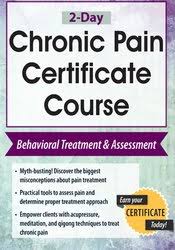
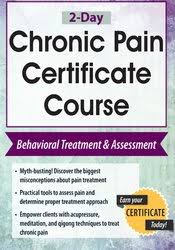

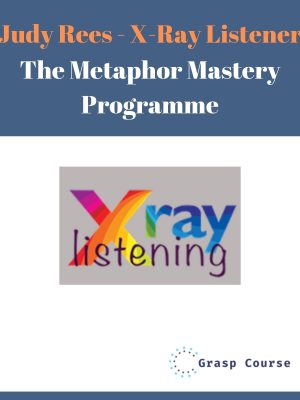
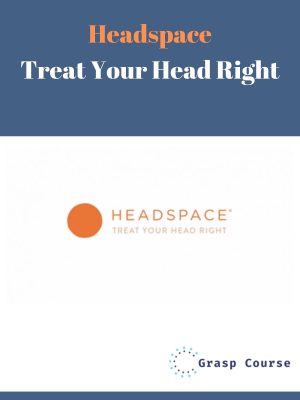
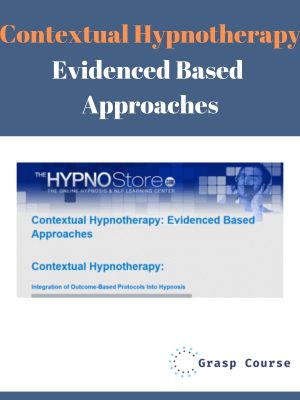
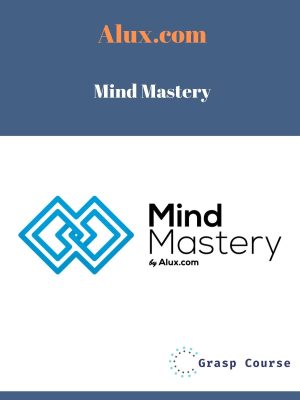
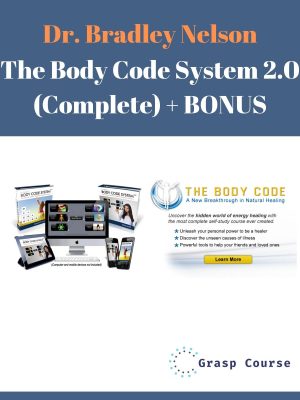
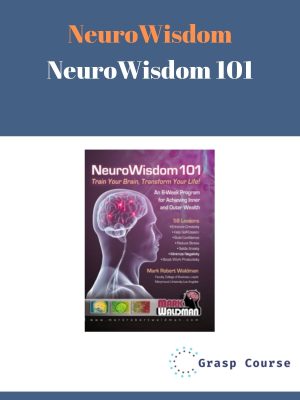

Reviews
There are no reviews yet.